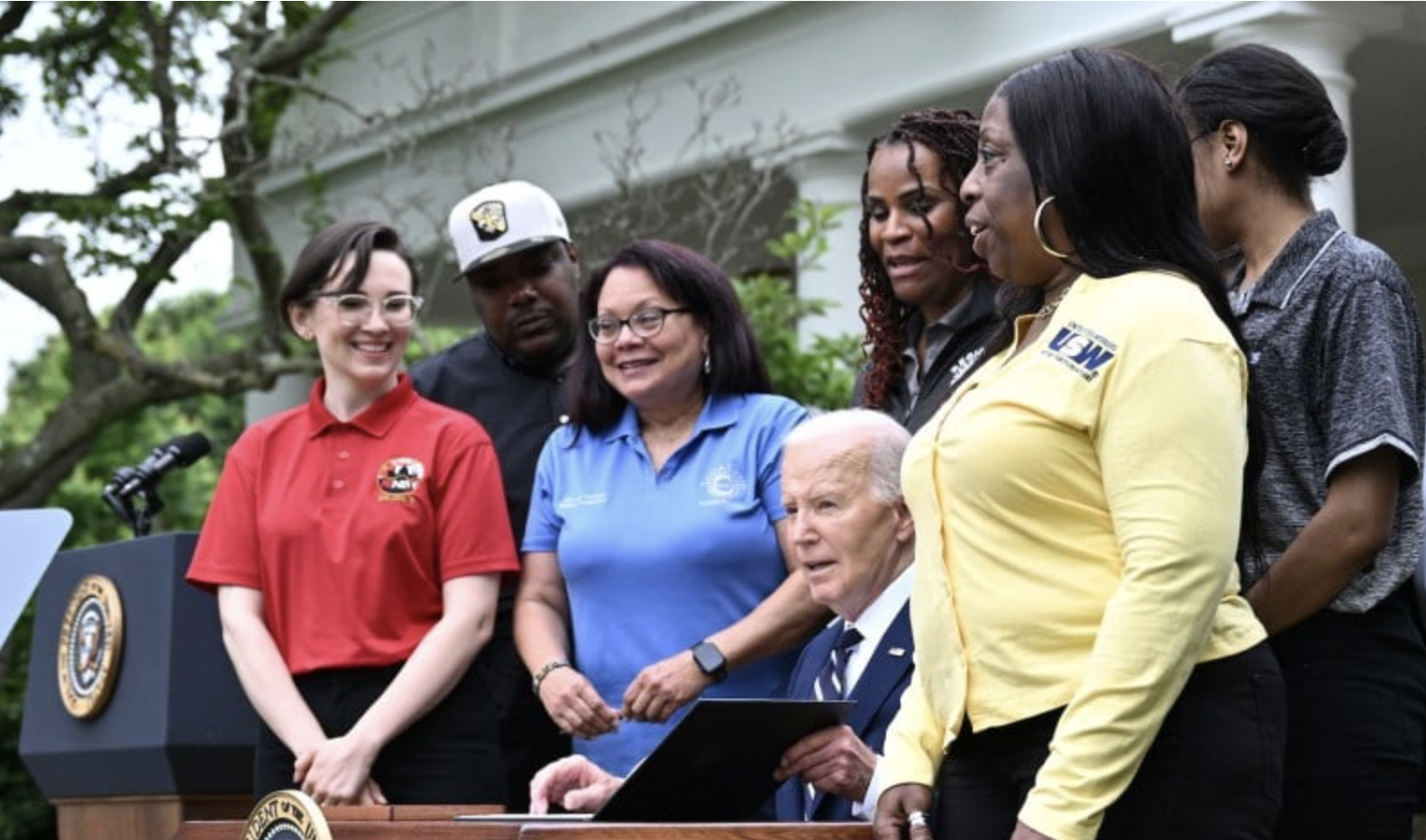Beijing denounced the move as the White House seeks to court key U.S. battleground states ahead of November’s presidential election.

Trade Frictions
U.S. President Joe Biden unveiled a new slew of U.S. tariffs on Chinese imports on Tuesday. The White House cited “unacceptable risks” posed by Beijing flooding the global market with cheap products. Around $18 billion of imported goods will be affected, including electric vehicles, semiconductors, steel and aluminum, critical minerals, medical products, and solar panels. Biden also said he would maintain tariffs, originally established under former U.S. President Donald Trump, on more than $300 billion of Chinese goods.
Among some of the key changes, the White House plans to quadruple electric vehicle duties to more than 100 percent, double taxes on solar cells and semiconductors, and place a 50 percent tariff rate on hospital syringes and needles. U.S. Trade Representative Katherine Tai said these tariffs were justified to combat Chinese efforts to steal U.S. intellectual property. The United States imported $427 billion in goods from China and exported $148 billion to Beijing last year, according to the U.S. Census Bureau.
“China is determined to dominate these industries. I’m determined to ensure America leads the world in them,” Biden posted on X on Tuesday.
Beijing immediately vowed retaliation. “This action will seriously impact the atmosphere of bilateral cooperation,” the Chinese Commerce Ministry said. Foreign Ministry spokesperson Wang Wenbin urged the White House to cancel the measures, arguing that they go against consensus reached during Biden’s summit with Chinese President Xi Jinping in San Francisco last November. “We urge the U.S. to stop repairing and digging up the road at the same time, so to speak, and create enabling conditions for China-U.S. climate cooperation and global green transition,” Wang said.
Biden’s announcement signals the latest escalation in a trade war that began under Trump and has since become a key campaign issue ahead of the November U.S. presidential election. Trump routinely raised tariffs on Chinese goods during his tenure. He has since proposed a 10 percent tax on all imports from all countries as well as a tax of at least 60 percent on all Chinese goods, including a 200 percent tax on Chinese vehicles manufactured in Mexico.
Biden has criticized Trump’s “across-the-board tariffs” while also toughening his own economic posturing on China in a bid to woo working-class voters in key swing states, including areas at the center of the United States’ auto industry. “We know China’s unfair practices have harmed communities in Michigan and Pennsylvania and around the country that are now having the opportunity to come back due to President Biden’s investment agenda,” said Lael Brainard, the director of the White House National Economic Council.




COMMENTS